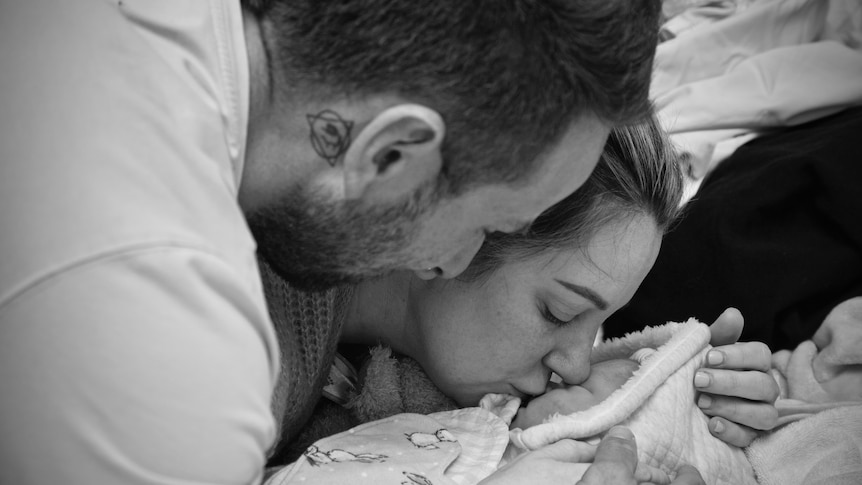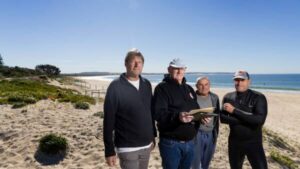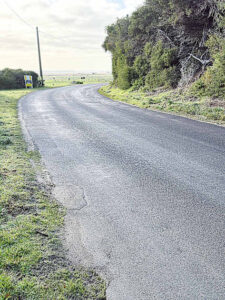
A newborn baby girl, Milli Rose Remidy Evrard, died six days after her birth due to a rare genetic condition that was not detected during pregnancy. Her parents, Dylan and Rochelle Evrard, celebrated their wedding on March 2023, which also served as a gender reveal for their much-anticipated first child. Tragically, the joy of their nuptials turned into profound grief just months later.
Milli was born on July 14, 2023, via caesarean section at Pindarra Private Hospital in Benowa, located on the southern Gold Coast. Despite the excitement surrounding her arrival, she was born with two broken arms and two broken legs. Throughout her pregnancy, Rochelle had expressed concerns about her daughter’s lack of movement, but routine scans did not reveal any underlying issues.
Rochelle shared her worries, stating, “I was a bit concerned. I never had a kick count.” Just hours after her birth, Milli was transferred to the Mater Mothers’ Hospital neonatal critical care unit in Brisbane for specialized care. Although she briefly opened her eyes and made a connection with her father, Milli’s condition quickly deteriorated. She succumbed to her injuries six days later, leaving her parents heartbroken yet grateful for the time they had with her.
In preparation for Milli’s arrival, the Evrards had meticulously set up their home in Mudgeeraba, including a nursery decorated in pink. Rochelle recounted the emotional toll of seeing the empty baby capsule in their car, reflecting on the haunting phrase, “No one ever prepares you for an empty capsule when your baby dies.” She recalled the pain of having to remove the capsule, emphasizing the deep sense of loss they experienced.
Genetic testing conducted after Milli’s passing revealed that she had nemaline rod myopathy, a rare musculoskeletal disorder affecting approximately one in 50,000 live births. According to David Coman, a clinical geneticist at Queensland Children’s Hospital, the disorder resulted from a spontaneous mutation in the ACTA1 gene, known as a “de novo mutation.” This mutation occurred either at conception or during early cell division, meaning neither parent carried the genetic variant.
Professor Coman highlighted the significance of understanding such rare conditions, stating, “In a third of rare presentations, we don’t get an answer… for families where we get an answer, even if it’s a life-limiting answer, there is still what we call dignity in diagnosis.”
Despite the grief, the Evrards sought to expand their family. They began in vitro fertilisation (IVF) approximately four months after Milli’s death. After a miscarriage and further surgery for endometriosis, Rochelle successfully conceived again. Their son, Huey Hendrix Evrard, was born on May 2, 2024, and Rochelle describes the experience of motherhood with Huey as “healing.”
Rochelle admitted that she faced significant anxiety throughout her subsequent pregnancy, often questioning, “What if he dies?” She frequently visited the maternity ward for reassurance, but now, just a few months after Huey’s birth, she embraces the challenges of motherhood. “He sounds like a goat in the middle of the night. He’s very loud,” she shared with laughter, expressing a newfound appreciation for the joys of parenthood that had previously eluded her.
The Evrards’ story is a testament to resilience in the face of unimaginable loss. Their journey highlights the importance of support and understanding for those navigating the complexities of grief while also celebrating the new beginnings that life can offer.






